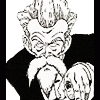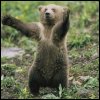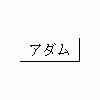
!!!!!!!!!!!!!!! Tu piszcie wszystko co wiecie o NINJUTSU !!!
Napisano Ponad rok temu
Napisano Ponad rok temu
Napisano Ponad rok temu
Trochę wiadomości dla tepych i tych co chcą coś zrozumiećKoto-ryu Koppojutsu Happo Biken (Knocking Down Tiger School)
Koto-ryu Rikishi - History by Peter Carlsson
"The information presented here is based upon the research of me personally, with great help from others (mentioned where appropriate) and has not been verified by, nor received the approval of Hatsumi Soke. It is presented only as the researchers interpretation of history and should not be taken as fact."
--------------------------------------------------------------------------------
The exact origin of KOTO RYU is unknown, but it was probably brought to Japan from what to day is Korea by a person named CHAN BUSO. There is no sources on when this happened exactly, but there went several generations before the system was organized by SAKAGAMI TARO KUNISHIGE. It was took two generations more until TODA SAKYO ISHINSAI formally formed KOTO RYU KOPPOJUTSU as a RYU.
SAKAGAMI TARO KUNISHIGE was considered as the first SOKE in KOTO RYU, but BANDO KOTARO MINAMOTO MASAHIDE, the one that was to be the 2'nd SOKE died in battle 1542. Instead the RYU went to SOUGYOKU KAN RITSUSHI who also was the SOKE of GYOKKO RYU. There after the KOTO RYU was following the same family line as GYOKKO RYU, today the SOKE of both RYU are MASAAKI HATSUMI and can be found in the BUJINKAN BUDO TAIJUTSU system. The difference apposed to GYOKKO RYU was that KOTO RYU was only taught to the person that would become the next SOKE.
The name KOTO RYU means "knocking down tiger", to knock down a tiger with the fingers, the techniques are quite brutal in its methods. KOPPOJUTSU means to destroy the bone structure on the attacker. What specializes the KOTO RYU techniques is that distance is created by moving along with the attack, then moving forward with a strike and then move quickly out to a safe distance again. This is done to come in with a strike at exactly 90 degrees against the bone structure of the attacker to do most damage. To do this demands good timing and rhythm in the defensive attack, often done with YOKO ARUKI.
Another thing that is a specialty is the YOKO ARUKI (moving with the legs crossing each other). Another important part of the footwork is to hit the attackers TOKI (the top of the foot), by kicking or stepping on it to control his balance.
It should also be noted that the starting distance should be really big from the start, the attacker must take one big step or several steps to reach the defender. This states clearly that KOTO RYU was developed for the battlefield or out doors in general, and not inside a house or narrowed places.
The KOTO RYU stylist should be looking right between the attackers eyebrows, so that the attacker cannot read the intentions through his eyes. The attacker will also believe that he have eye contact, wich will be confusing for him in an unusual way.
Other typical methods of KOTO RYU is the use of METSUBUSHI, different ways of blinding the attacker or attacking the eyes directly. METSUBUSHI could be powder thrown at the attackers eyes, but also reflections at the eyes from the sword or other metal blades. For example when it rains the KOTO RYU stylist would stand in MANGETSU NO KAMAE (similar to HOKO NO KAMAE with the blade in the left hand) and collect water in the HI of the blade and then throw the water at the enemies eyes before the sword slashes down.
Because of the hard character of the KOTO RYU techniques it demands hard discipline training to harden the body. TAKAMATSU TOSHITSUGU (the former SOKE) started his training in KOTO RYU when he was nine years old, and was considered a KOTO RYU master when he was 13 years old. In his self biography he has written that he got hard fingers and toes by hitting stone and gravel until the blood came through the finger and toenails.
SHAKO KEN (claw hand) is one of the strikes that are used in KOTO RYU. There are story's about TAKAMATSU in the 1960's when he convinced KOIZUME SHIZUO a journalist from the TOKYO Sport Newspaper by literally drilling five holes through the bark of a tree with his SHAKO KEN finger strike.
KOTO RYU also have an unusually way of using the Japanese sword. KOTO RYU is one of the very few RYU that sometime changed the grip of the sword by holding it with the left hand near the TSUKA. This gives multiple ways of holding the sword with crossed arms that would totally confuse the attacker, and sometimes convince him that the KOGA RYU stylist was an amateur and an easy opponent.
Technically GYOKKO RYU complements KOTO RYU perfect and together makes a good fighting system. But you should also be aware that both RYU have its own methods and techniques of moving, but together they practically covers all kinds of variations.
If we go back to the history we can se that there have been several famous NINJA's that have studied both KOTO RYU and GYOKKO RYU. One of the most known NINJA's was SANDAYU MOMOCHI who was one of the leading persons in the RYUGU SANBONMATSU village, and one of the defenders against the ODA NOBUNAGA invasion in 1582. He was the SOKE for both KOTO RYU and GYOKKO RYU.
One of SANDAYU MOMOCHI's students was ISHIKAWA GOEMON who came to be known and infamous as the Japanese kind of Robin Hood. He also tried to assassinate HIDEYOSHI TOYOTOMI, but he was captured and boiled in oil. Some sources says that he managed to escape but the Shogunate never dared to reveal that, but that must be considered as relatively unbelievable.
--------------------------------------------------------------------------------
Kazu - The genealogy of Koto-ryu:
Sakagami, Taro Kunishige Tembun (1542)
Sakagami, Kotaro Masahide Tembun
Sougyoku, Kan Ritsushi Tembun
Toda, Sakyo Ishinsai Tembun (ca 1542-1555)
Momochi, Sandayu Tensho (ca 1570-1592)
Momochi, Sandayu II Bunroku (1596-1615)
Momochi, Tanba Yasamitsu Genna (1615-1624)
Momochi, Taro Saemon Kwanyei (1624-1644)
Toda, Seiryu Nobutsuna Manji (1644-1661)
Toda, Fudo Nobuchika Tenna (1681-1704)
Toda, Kangoro Nobuyasu Hoyei (1704-1711)
Toda, Eisaburo Nobumasa Shotoku (1711-1736)
Toda, Shinbei Masachika Gembun (1736-1764)
Toda, Shingoro Masayoshi Meiwa (1764-1804)
Toda, Daigoro Chikahide Bunkwa (1804)
Toda, Daisaburo Chikashige Keiyo (1865) (1824.??.?? -
Toda, Shinryuken Masamitsu (Kobe) Taisho (1909) (18??.??.?? - 1909.??.??)
Takamatsu, Toshitsugu Uoh (Nara) Meiji (1910-1972) (1888.03.01 - 1972.04.02)
Hatsumi, Masaaki (Noda) Showa (1968) (1931.12.02 - )
--------------------------------------------------------------------------------
Structure of Koto-ryu:
The basic movements include large exaggerated blocking movements, like the Ichimonji in the Kihon Happo. Characteristics about Koto Ryu Koppojutsu is the Yoko Aruki (cross stepping movements), stomping on Toki (the foot). The eyes are looking right between the eyebrows on the opponent, this way the feelings and intention will not be easily detected by the opponent, "The eyes are everything" is a saying from the scrolls. The postures with the sword (weapons?) is quite unique, often leading with the left foot, and the left hand closest the Tsuba.
The training levels in Koto-ryu are as follows...
Kurai Tori Kamae - 5 basic Kamae
Shoden no Kata - 18 basic techniques
Chuden no Kata - 12 basic techniques
Okuden no Kata - 12 basic techniques
Hekuto no Kata - 8 basic techniques
Sanpo Gassho:
There are three forms of Kuji (Mikkyo Escoteric hand signs) that are called Sanpo Gassho (three treasures) in the Koto Ryu Gassho Kuji Kiri (Nine symbol slashes prayers).
Kongo Gassho - Cloud Prayer
Suirin Gassho - Water Ring Prayer
Kaku Gassho - Fire and Winds Prayer
--------------------------------------------------------------------------------
Kyusho of Koto-ryu:
These are weak spots on the body. To hit a kyusho point requires a lot of training, It doesn't really just require that you know where it exactly is. There are a lot of factors that has to be considered. First of all, most kyusho points are very small and difficult to find (you can not measure it out, because not all bodies are the same), then they have to be hit from a specific angle to be most effective. You also have to consider the opponent's condition if a certain kyusho is weak or strong. A perfect strike to a kyusho will only inflict pain, and will give you extra time to continue with your technique. There is however a lot more to it than that, you might call it the sixth sense. Sometimes your training partner says that you should stop hit on that spot because it is injured and it hurts, you did not know that and was not aware of him being extra sensitive in that particular spot of his body. Was that a lucky strike? Maybe, or you just unconciously knew where to hit to make the most damage. I think that by correct training you will be able to hit the correct points without knowing about this chart anyway. I don't think studying these points without correct training will do anyone good. Please only think of this as something that might be interesting in an historical point of view.
Ura Kimon (Outside Devil Opening) - Ribs under pectoral muscle.
Ryu Fu (Willow Wind) - Above & below Adams apple.
Kasumi (Fog, Mist) - Temple.
Hiryuran (Flying Dragon Confuser) - Eyes.
Shishiran (Tiger Confuser) - Stomach.
Kosei (Power Of The Tiger) - Groin.
Yugasumi (Evening Mist) - Soft spot below the ear.
Tsuyugasumi (Drop Of Mist) - Under the jawline.
Ryumon (Dragon Gate) - Under collarbone near shoulder.
Jujiro (Intersection) - Front of the shoulder.
Jakkin (Weak Muscle) - Upper arm between bone & muscle.
Daimon (Big Gate) - Middle of shoulder joint.
Asagiri (Morning Mist) - Bottom of the chin.
Sei (Star) - Directly under the armpit.
Kinketsu (Tabu Hole) - Sternum.
Koshitsubo (Hip Pot) - Inside ridge of the hipbone.
Hichibatsu (Voice) - Side of the hip.
Tenmon (Heavens Gate) - Ridge of the eye socket.
Uko (Door Of Rain) - Side of the neck.
Jinchu (Center Of The Human) - Base of the nose.
Happa (Eight Leaves) - Clapping the ears.
Menbu (Face) - Bridge of the nose.
Tokotsu (Independent Bone) - Adams apple.
Gorin (Five Rings) - Around the stomach.
Sai (Leg) - Inside & Outside of upper leg.
Matsu Kaze (Pinetree Wind) - Just above and below the end of the clavicles.
Mura Same (Village Rain) - Notch between the clavicles.
Hoshizawa (Cliff Of Stars) - Elbow joint.
In (Shadow) - Inside the swell of cheekbone.
Ten To (Top Of The Head) - Soft spot on top of the head.
Shin Chu (Center Of The Heart) - Middle of the chest.
Wakitsubo (Side Of The Body) - Ribs under the armpit.
Yubitsubo (Finger Pot) - Base of the thumb.
Butsumetsu (The Day Buddha Died) - Ribs under the chest muscles on the front and back.
Kyokei (Strong Tendons) - Top of the foot just above toes
tu trochę o szkole Koto Ryu...napisze więce ale jutro .
Dodam tyle żęe te wiadomości są pobrane ze strony bbi
pozdrawiam
Napisano Ponad rok temu
[link widoczny dla zalogowanych Użytkowników]
[link widoczny dla zalogowanych Użytkowników] stronka:) )
jeśli coś sobie przypomne to dopisze.
W polsce jako takiego nie ma ninjutsu(niby jest w poznaniu ,ale jakoś temu nie ufam ...prawdobodobnie jest to mieszanin karate z ninjutsu,może jest ktoś kto tam trenuje i napisze cos o tym,dodam że b.duzo jet w polsce oszustow ktorzy nabieraja ludzi)niedługo w moze powstac dojo w łodzi ...własciwie to juz jest ale na okresie probnym w Bujinkanie (istnieje jeszcze inna organizacja pod nazwa Genbukan,odłoczyła sie od Bujinkanu).W Ninjutsu nie ma takich stopni jak 15 dan
Pozdrawiam
M
Tygrys
p.s
Jesli chcecie sie upewnic czy trenujecie Ninpo ,czy niby przypadkiem nie jesteście oszukiwani zapytajcie o dyplom , osoby posiadające go moga uczyc ninjutsu , bedzie na nim nazwaorganizacji mistrz ktory nauczal i Ryu-ha ktore dana osoba poznala.
Napisano Ponad rok temu
Użytkownicy przeglądający ten temat: 2
0 użytkowników, 2 gości, 0 anonimowych
 FaceBook
FaceBook
10 następnych tematów
-
 Jak zaczynali ...
Jak zaczynali ...- Ponad rok temu
-
 Pady... czas na zmiany ?Porównanie padów
Pady... czas na zmiany ?Porównanie padów- Ponad rok temu
-
 parter
parter- Ponad rok temu
-
 Shaolin Kempo
Shaolin Kempo- Ponad rok temu
-
 "Olimp" - Wrocław
"Olimp" - Wrocław- Ponad rok temu
-
 Toho Iai
Toho Iai- Ponad rok temu
-
 JODO
JODO- Ponad rok temu
-
 Magiczne techniki Systema
Magiczne techniki Systema- Ponad rok temu
-
 eBooks o MA
eBooks o MA- Ponad rok temu
-
 Grand Master Wang Shu-Chin
Grand Master Wang Shu-Chin- Ponad rok temu





